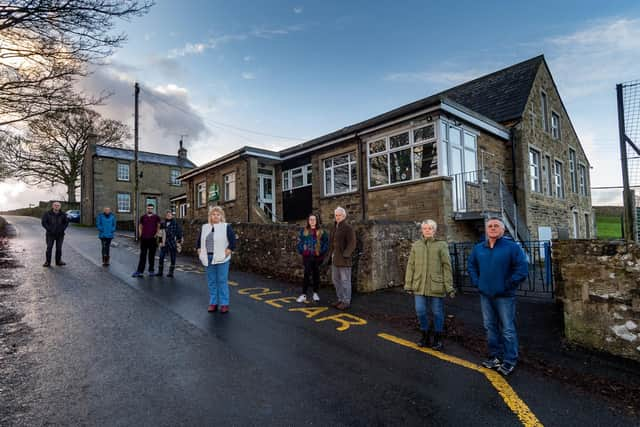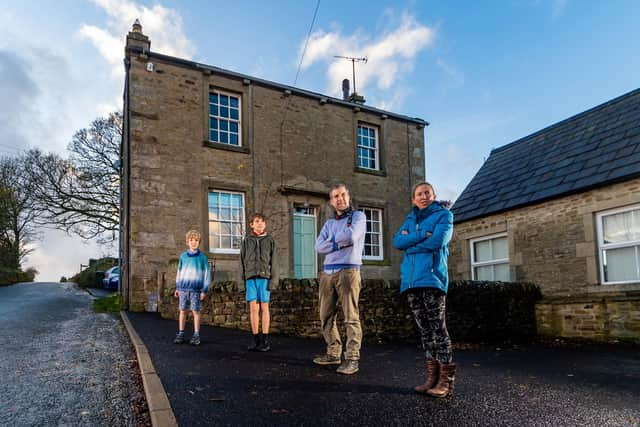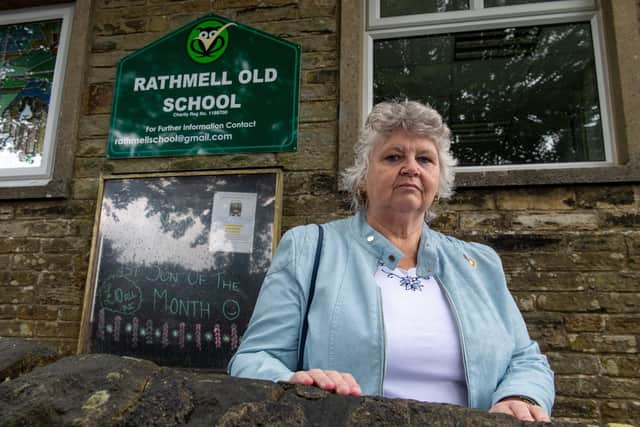Court battle over ownership of Yorkshire village school ends at 11th hour as trustees accept they have 'no claim' to building
The three trustees of Rathmell Old School in a small village near Settle believed they could prove that the site should not legally ‘revert’ to the Church of England after it closed to pupils in 2017. The charitable trust has instead taken over the building and runs it as a community centre with office space.
Yet the Diocese of Leeds challenged their claim, and both sides were set to face off at the High Court in Leeds on Tuesday, with a district judge to decide who would be proprietors of the Victorian schoolhouse and surrounding land in future.
Advertisement
Hide AdAdvertisement
Hide AdThe surviving buildings date from the 1870s and the charity argued that they could take over the site after it ceased to be used for educational purposes because the land had been bequeathed to the trust by a benefactor in the 19th century – the great-grandfather of one of the current trustees.


The Diocese asserted that their right of ownership of the property, which includes the former schoolmaster’s house that is now rented to tenants, was because they had granted the school Voluntary Aided status in the 1950s, and offered financial assistance. The trustees disputed this argument, countering that the land had never been Church-owned and that the original deeds made no mention of religion.
Both sides planned to rely on centuries-old legal documents that were ‘barely legible’ to state their case after the trustees declined an offer made by the Diocese to sign over the school and lease it back from them.
Lawyers for the Diocese and the trust had prepared for a two-day hearing before Recorder Janet Bignell KC, but the night before a settlement was agreed by both parties.
Advertisement
Hide AdAdvertisement
Hide AdSetting out the Diocese’s accepted evidence, Matthew Smith KC said that it was no longer contested by the trustees that the site did not have a ‘right of reverter’ attached to it – a legal team meaning that land that has been gifted should be returned to the donor or their descendants.


A joint public statement was agreed by both sides, including the assurance that the Diocese remained committed to working with all concerned parties over the future of the buildings. The defendants can make no further public comment on the matters.
Mr Smith added that the Church’s evidence was based on proving that the land was never subject to the School Sites Act of 1841, a law which permitted benefactors to donate land or sell land to charities for the schooling of poor children.
He said his experts had consulted various deeds and documents, including an 1869 scheme drawn up by the Charities Commission for the school at Rathmell following an application by the benefactor, Christopher Geldard. It made no reference to reverter rights or the Act.
Advertisement
Hide AdAdvertisement
Hide AdThe scheme was replaced and renewed in 2007, again with no reference to a reverter. When the school was rebuilt in 1870, a committee report detailing a grant of money indicated no other trustee than the 1869 scheme.


Receipts of expenditure and appeals for financial assistance over the centuries did not record that the land had been gifted or its value, and a parliamentary return made by the then-trustees in 1906 referred to the scheme of 1869 and indicated a dash next to the column recording whether the School Sites Act applied.
Mr Smith concluded: “This is a positive attestation that there was no separate deed, just a scheme, and so there is no place for reliance on the 1841 Act. This is the most persuasive evidence, and the trustees’ claim was, at best, an optimistic interpretation of ‘gaps’ rather than based on documentary record.”
Agreeing to issue the declaration, Recorder Bignell ruled: “There is highly unlikely to have been a relevant deed under the 1841 Act. I am entirely satisfied that the declaration should be made. My own reading of the documents reflects the claimaints’ interpretation. For all others who have sought to assert an interest in the land, matters can move on. The issue of the reverter can be swept away.”
Advertisement
Hide AdAdvertisement
Hide AdThe Diocese of Leeds said: “It is now a matter for the Secretary of State for Education as to whether or not to make an order under section 554 of the Education Act 1996. It would be inappropriate for any party to comment any further at this stage.”
Comment Guidelines
National World encourages reader discussion on our stories. User feedback, insights and back-and-forth exchanges add a rich layer of context to reporting. Please review our Community Guidelines before commenting.
